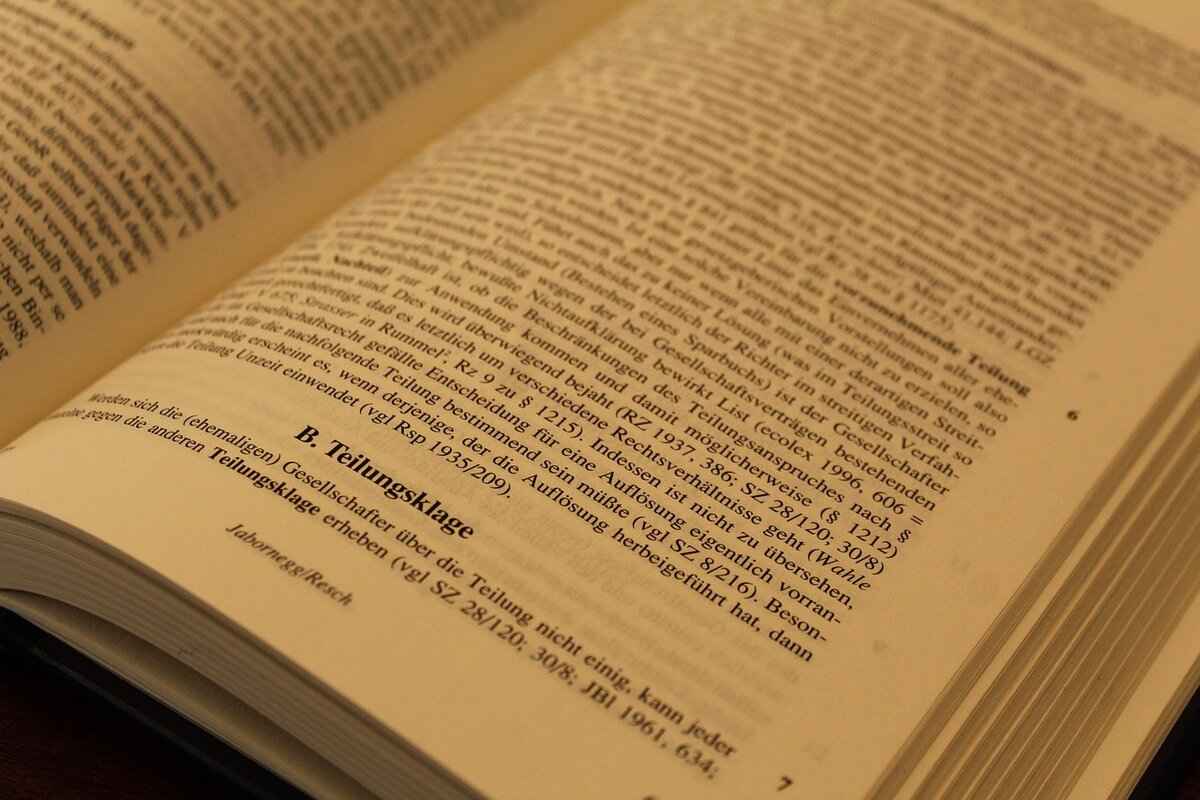This article provides a comprehensive guide on the intricate process of suing a foreign court or entity. It offers insights into jurisdiction, legal frameworks, and practical considerations for individuals and businesses contemplating such actions.
Understanding Jurisdiction in International Lawsuits
Jurisdiction is a fundamental aspect of international litigation, determining which court has the authority to adjudicate a case. It is essential to understand the principles of jurisdiction as they apply to foreign entities. Typically, jurisdiction can be established based on the location of the defendant, the place where the contract was formed, or where the incident occurred. Each of these factors plays a crucial role in deciding whether a foreign court can hear your case.
Choosing the Right Legal Framework
Selecting the appropriate legal framework for your case is vital. Various international treaties and laws govern disputes involving foreign entities. Understanding these frameworks can significantly influence the outcome of your lawsuit.
- The Role of International Treaties: International treaties often dictate the procedures and rights involved in cross-border litigation. Key treaties, such as the Hague Convention, can impact jurisdiction and legal proceedings.
- National Laws Affecting International Claims: Different countries have varying approaches to international disputes. Familiarizing yourself with the national laws of the jurisdiction where you intend to file your case is crucial.
Gathering Evidence for Your Case
Collecting evidence is paramount in any lawsuit, especially in international cases. Effective strategies for gathering and presenting evidence can make a significant difference in your case’s success.
- Documenting Your Claims: Proper documentation is essential for substantiating your claims. Types of evidence that are particularly persuasive in international lawsuits include contracts, communications, and witness statements.
- Utilizing Expert Witnesses: Expert witnesses can lend credibility to your case, especially in complex international legal matters. Finding and utilizing experts in relevant fields can strengthen your position significantly.
Filing Your Case in a Foreign Court
Filing a case in a foreign court involves specific procedures that must be followed meticulously. Initiating legal action against a foreign entity requires understanding local court procedures.
- Understanding Local Court Procedures: Each foreign court has its own set of rules and practices. Familiarity with these procedures is essential for successfully filing your lawsuit.
- Legal Representation in Foreign Jurisdictions: Hiring local legal representation is crucial for navigating foreign courts effectively. Finding the right attorney who understands the local legal landscape can greatly enhance your chances of success.
Enforcement of Judgments Against Foreign Entities
Winning a lawsuit is only part of the process; enforcing a judgment can be particularly challenging. Strategies for enforcing judgments internationally must be carefully considered.
- Recognizing Foreign Judgments: Different jurisdictions have varying rules for recognizing foreign judgments. Understanding these complexities is essential for successful enforcement.
- Challenges in Enforcement: The enforcement of judgments can present numerous challenges, including differing legal standards and potential appeals. Identifying these obstacles early can help in formulating strategies to overcome them.
In summary, the process of suing a foreign court or entity is multifaceted and requires careful planning and execution. By understanding jurisdiction, choosing the right legal framework, gathering compelling evidence, and navigating local court procedures, you can significantly enhance your chances of a favorable outcome.

Understanding Jurisdiction in International Lawsuits
Understanding jurisdiction in international lawsuits is essential for any entity looking to navigate the complexities of cross-border legal disputes. Jurisdiction refers to the authority of a court to hear a case and make legal decisions. In the context of international lawsuits, determining jurisdiction can be particularly challenging due to varying laws and regulations across different countries.
What is Jurisdiction? Jurisdiction encompasses several principles that dictate which court has the authority to adjudicate a case. These principles can be broadly categorized into territorial jurisdiction, personal jurisdiction, and subject matter jurisdiction. Each of these categories plays a crucial role in establishing whether a court can hear a case involving foreign entities.
- Territorial Jurisdiction: This principle asserts that a court has the authority to hear cases that arise within its geographical boundaries. For example, if a contract was signed in a specific country, that country’s courts may claim jurisdiction over disputes arising from that contract.
- Personal Jurisdiction: Personal jurisdiction refers to the court’s power over the individuals or entities involved in the case. A court may establish personal jurisdiction based on the defendant’s connections to the jurisdiction, such as conducting business there or owning property.
- Subject Matter Jurisdiction: This principle determines whether a court has the authority to hear a specific type of case. For instance, some courts specialize in commercial disputes, while others may focus on family law.
When dealing with foreign entities, it is crucial to consider the principle of comity, which encourages courts in one jurisdiction to respect the laws and judicial decisions of another. However, this principle is not absolute and can be influenced by factors such as public policy or fairness.
International Treaties and Jurisdiction also play a significant role in determining jurisdiction in international lawsuits. Various treaties, such as the Hague Convention and the United Nations Convention on Contracts for the International Sale of Goods, provide frameworks for resolving disputes and can influence jurisdictional decisions.
Furthermore, the doctrine of forum non conveniens allows courts to dismiss cases when another jurisdiction is deemed more appropriate for the case. This doctrine is particularly relevant in international disputes, where the most suitable court may not be the one where the lawsuit was initially filed.
In summary, understanding jurisdiction in international lawsuits is a multifaceted issue that requires careful consideration of various legal principles and treaties. For individuals and businesses involved in cross-border disputes, consulting with legal experts who specialize in international law is essential to navigate these complexities effectively.

Choosing the Right Legal Framework
Selecting the appropriate legal framework for your case is essential. In the context of international disputes, understanding the various treaties and laws that govern these cases involving foreign entities is crucial. This section will provide an overview of the key legal frameworks you should consider when pursuing legal action against a foreign party.
When entering the realm of international litigation, one must recognize the importance of jurisdiction. Jurisdiction determines which court has the authority to adjudicate a case, and it can vary significantly depending on the countries involved. Various factors, such as the location of the parties, the nature of the dispute, and the applicable treaties, can influence jurisdictional decisions.
International Treaties serve as the backbone of legal frameworks in cross-border disputes. These treaties provide guidelines and rules that can facilitate or complicate the process of suing foreign entities. Here are some key treaties to consider:
- The Hague Convention on Civil Procedure: This treaty outlines the procedures for civil litigation across different jurisdictions. Familiarity with its provisions can enhance your ability to navigate complex international lawsuits effectively.
- United Nations Convention on Contracts for the International Sale of Goods (CISG): This convention governs the sale of goods between parties in different countries. Understanding its implications is vital for claims related to international contracts.
- New York Convention on the Recognition and Enforcement of Foreign Arbitral Awards: This treaty is crucial for the enforcement of arbitration awards across borders, providing a framework for recognizing and executing judgments.
In addition to international treaties, national laws play a significant role in shaping the legal landscape for international claims. Each country has its own legal principles that can affect the ability to sue foreign entities. For instance, some jurisdictions may have specific laws that limit the extent to which foreign entities can be sued, while others may offer broad access to their courts for international claims.
When selecting the right legal framework, it is also essential to consider the practical implications of your choice. This includes evaluating the likelihood of success in a given jurisdiction, the potential costs involved, and the time frame for legal proceedings. Consulting with an attorney who specializes in international law can provide valuable insights into these factors.
Furthermore, understanding the enforcement mechanisms available in the chosen jurisdiction is vital. Winning a case is only part of the battle; ensuring that any judgment is enforceable in the relevant jurisdiction is crucial for recovering damages or enforcing rights.
In conclusion, choosing the right legal framework when dealing with foreign entities involves a comprehensive understanding of international treaties, national laws, and practical considerations. By carefully evaluating these elements, individuals and businesses can better position themselves for success in international legal disputes.
The Role of International Treaties
International treaties are pivotal in shaping the landscape of international litigation, particularly when it comes to lawsuits against foreign entities. These treaties establish the legal frameworks that govern how disputes are resolved across borders, ensuring that parties have a clear understanding of their rights and obligations. This section will delve into the significant treaties that can influence jurisdiction and legal proceedings, providing essential insights for individuals and businesses considering legal action against foreign entities.
One of the most influential treaties in this context is the Hague Convention on Civil Procedure. This treaty facilitates cross-border litigation by standardizing the rules and procedures that courts must follow when handling international civil cases. By outlining clear guidelines for service of process, evidence collection, and court jurisdiction, the Hague Convention aims to minimize conflicts and uncertainties that can arise in international lawsuits. Understanding the provisions of this convention is crucial for navigating the complexities of international litigation effectively.
Another important treaty is the United Nations Convention on Contracts for the International Sale of Goods (CISG). This convention governs the sale of goods between parties in different countries, providing a uniform framework for contract formation, performance, and breach. The CISG can significantly impact lawsuits involving international trade disputes, as it helps to clarify the rights and responsibilities of each party under the contract. Legal practitioners must be well-versed in the CISG to leverage its provisions effectively during litigation.
Furthermore, the New York Convention on the Recognition and Enforcement of Foreign Arbitral Awards plays a critical role in international arbitration. This treaty provides a framework for recognizing and enforcing arbitration awards across member states, thus facilitating the resolution of disputes without resorting to lengthy court proceedings. Understanding how this convention operates can be beneficial for parties seeking to enforce arbitration agreements or awards in foreign jurisdictions.
In addition to these treaties, various regional agreements, such as the European Union’s Brussels Regulation, also influence jurisdictional matters in international lawsuits. This regulation harmonizes rules regarding jurisdiction and the recognition of judgments among EU member states, making it essential for legal practitioners to understand its implications when dealing with cross-border disputes within Europe.
The impact of international treaties extends beyond procedural aspects; they also shape substantive law. For instance, treaties addressing human rights, environmental protections, and trade can influence the legal arguments presented in international lawsuits. Legal professionals must stay informed about the evolving landscape of international treaties, as changes can significantly affect their clients’ legal strategies and outcomes.
In conclusion, international treaties serve as the backbone of legal proceedings involving foreign entities. They provide the necessary frameworks for jurisdiction, procedural rules, and substantive law, enabling parties to navigate the complexities of international litigation. As such, understanding these treaties is vital for anyone considering legal action against a foreign entity. By leveraging the provisions of these treaties, individuals and businesses can enhance their chances of success in international lawsuits.
Hague Convention on Civil Procedure
The serves as a pivotal framework in the realm of international litigation, providing essential guidelines for civil disputes that transcend national borders. Understanding its provisions is vital for individuals and entities engaging in lawsuits across different jurisdictions.
Established to facilitate cooperation between countries, the Hague Convention addresses key issues such as jurisdiction, service of process, and the recognition and enforcement of foreign judgments. By adhering to these principles, litigants can navigate the complexities of international legal proceedings more effectively.
Jurisdiction is the cornerstone of any legal proceeding, determining which court has the authority to hear a case. The Hague Convention stipulates that jurisdiction must be established based on the defendant’s domicile or the location where the obligation was performed. This means that understanding where a foreign entity is based can significantly influence the ability to initiate legal action.
Another critical aspect of the Hague Convention is the service of process. The Convention provides a streamlined method for serving legal documents internationally, ensuring that defendants receive proper notice of legal actions against them. This is achieved through designated central authorities in each member country, which facilitate the transmission of documents. Adhering to these protocols is essential to avoid delays and potential dismissals of cases.
One of the most significant advantages of the Hague Convention is its provisions regarding the recognition and enforcement of foreign judgments. When a judgment is rendered in one member country, it can be recognized in another, provided certain conditions are met. This reduces the complexities often associated with enforcing judgments across borders, making it easier for litigants to collect on awards.
For individuals and businesses considering litigation in a foreign jurisdiction, understanding the Hague Convention is crucial. It not only clarifies procedural requirements but also helps in strategizing the best approach to take in international disputes. Engaging with legal professionals who are well-versed in international law can provide invaluable insights into leveraging the Convention’s provisions effectively.
In summary, the Hague Convention on Civil Procedure is an essential tool for navigating international lawsuits. Its comprehensive framework addresses jurisdiction, service of process, and the enforcement of judgments, making it indispensable for anyone involved in cross-border litigation. By understanding and utilizing the provisions of the Hague Convention, litigants can enhance their chances of success in foreign courts.
United Nations Convention on Contracts
The United Nations Convention on Contracts for the International Sale of Goods (CISG) is a pivotal international treaty that governs contracts for the sale of goods between parties located in different countries. This convention plays a significant role in shaping international trade and can greatly influence lawsuits involving foreign entities. Understanding the implications of the CISG is essential for businesses and legal professionals navigating the complexities of international contracts.
One of the primary objectives of the CISG is to provide a uniform framework that reduces the legal barriers to international trade. By establishing consistent rules regarding the formation, performance, and enforcement of contracts, the CISG helps parties avoid disputes and misunderstandings. This uniformity is crucial, especially in a global marketplace where diverse legal systems can complicate contractual relationships.
- Formation of Contracts: The CISG outlines how contracts are formed, including offer and acceptance, which is critical for establishing legal obligations.
- Obligations of the Parties: The convention delineates the responsibilities of buyers and sellers, ensuring clarity in performance expectations.
- Remedies for Breach: In cases of non-performance, the CISG provides various remedies, including the right to demand performance or seek damages, which are vital in legal claims.
When disputes arise, the CISG can significantly influence the outcome of lawsuits involving foreign entities. For instance, if a party to a contract seeks to enforce their rights under the CISG, they must first determine whether the convention applies to their case. This involves analyzing factors such as the countries of the parties involved and the nature of the goods sold.
In addition, the CISG allows for the possibility of opting out of its provisions, meaning that parties can choose to apply different legal frameworks if they so wish. This flexibility can lead to strategic decisions during contract negotiations, as parties may seek to leverage more favorable laws.
While the CISG offers numerous benefits, it is not without challenges. One of the main difficulties is the interpretation of its provisions, which can vary among jurisdictions. Courts may have different approaches to understanding the same article of the CISG, leading to inconsistencies in application. Therefore, legal practitioners must be well-versed in both the text of the convention and relevant case law to effectively represent their clients.
Moreover, the CISG does not cover all aspects of international sales. For example, it excludes certain types of contracts, such as those for the sale of goods for personal use. This limitation necessitates careful consideration of the specific circumstances surrounding each case.
In summary, the serves as a foundational legal instrument in international trade, providing a framework that can greatly affect legal claims involving foreign entities. By understanding its provisions and implications, businesses and legal professionals can better navigate the complexities of international contracts and protect their interests in cross-border transactions.
National Laws Affecting International Claims
When it comes to pursuing legal action against foreign entities, national laws play a pivotal role in shaping the landscape of international claims. Each country has its own set of legal frameworks and principles that can either facilitate or hinder the ability to sue foreign parties. Understanding these differences is crucial for individuals and businesses considering international litigation.
Jurisdictional Challenges
One of the primary hurdles in suing a foreign entity is establishing jurisdiction. Jurisdiction refers to the authority of a court to hear a case, and it can vary significantly from one country to another. For instance, some countries may require that a substantial connection exists between the dispute and their territory, while others may apply more lenient standards. In the United States, the concept of personal jurisdiction dictates that a court can only exercise authority over a defendant if they have sufficient contacts with the state where the court is located.
Legal Frameworks Across Borders
Countries also differ in their legal frameworks governing international disputes. For example, many nations are signatories to various international treaties that influence how foreign claims are handled. The Hague Convention on Civil Procedure, for instance, provides guidelines for cross-border litigation, promoting consistency in legal processes. Conversely, countries that are not party to such treaties may have more fragmented and unpredictable legal environments.
Impact of National Legislation
National laws can impose specific requirements on foreign claims. In some jurisdictions, plaintiffs may be required to exhaust local remedies before seeking relief in foreign courts. This means that individuals must first pursue available options within the foreign country before escalating the matter internationally. Additionally, certain nations have laws that limit the types of damages that can be pursued against foreign entities, which can significantly affect the outcome of a case.
Examples of National Approaches
- United States: The U.S. legal system allows for lawsuits against foreign entities under specific conditions, particularly when the foreign party has sufficient contacts with the U.S. However, the Foreign Sovereign Immunities Act provides certain protections to foreign governments, complicating claims against them.
- United Kingdom: The UK courts generally accept jurisdiction over foreign entities if a substantial connection to the UK can be established. The UK also recognizes the principle of forum non conveniens, allowing courts to dismiss cases if they believe another jurisdiction is more appropriate.
- Germany: German law emphasizes the principle of international comity, meaning that local courts may defer to foreign jurisdictions if they believe the case would be better resolved elsewhere. However, German courts also have strong consumer protection laws that can favor plaintiffs in international disputes.
Practical Considerations
For those considering legal action against a foreign entity, it is essential to conduct thorough research on the relevant national laws and jurisdictional issues. Engaging an attorney experienced in international law can provide valuable guidance in navigating these complexities. Moreover, understanding the local legal landscape can help in formulating a strategy that maximizes the chances of a successful outcome.
In summary, national laws significantly influence the ability to sue foreign entities, with each country presenting unique challenges and opportunities. By understanding these legal frameworks and their implications, plaintiffs can better prepare for the intricacies of international litigation.

Gathering Evidence for Your Case
Gathering evidence is a fundamental aspect of any legal proceeding, particularly in international lawsuits where complexities abound. The ability to present a compelling case hinges on the quality and relevance of the evidence collected. This section outlines effective strategies for gathering and presenting evidence that can significantly bolster your case.
In international lawsuits, the stakes are often high, and the legal frameworks can be intricate. Collecting robust evidence is essential not only for establishing the facts of your case but also for ensuring that your claims are taken seriously by foreign courts. The evidence must be meticulously gathered and presented to comply with both local and international legal standards.
- Identify Relevant Evidence: Begin by pinpointing the types of evidence that are crucial for your case. This may include contracts, emails, financial records, and witness statements.
- Utilize Technology: Leverage digital tools for evidence collection. Document management systems can help organize and store evidence securely, while data analysis tools can assist in interpreting complex information.
- Engage Local Experts: In international cases, local expertise can be invaluable. Consider hiring local investigators or legal experts who understand the nuances of the jurisdiction in question.
Proper documentation serves as the backbone of your legal claims. It is essential to maintain a comprehensive record of all communications and transactions related to your case. This includes:
- Emails and correspondence that substantiate your claims.
- Contracts and agreements that outline the obligations of the parties involved.
- Financial documents that reflect any damages incurred.
Expert witnesses can add significant weight to your case, particularly in specialized areas such as finance, engineering, or international law. Their testimony can clarify complex issues and provide an authoritative perspective that may sway the court’s decision. When selecting an expert witness, consider their qualifications, experience, and familiarity with the relevant legal framework.
Witness statements can play a pivotal role in corroborating your claims. When gathering these statements, ensure that:
- Witnesses are interviewed in a neutral setting to encourage candid responses.
- Statements are documented accurately and signed by the witness to verify authenticity.
- Witnesses understand the importance of their testimony and are prepared to present it in court if necessary.
Once evidence is collected, it is crucial to preserve it properly. This includes:
- Storing physical evidence in secure locations.
- Backing up digital evidence on multiple platforms to prevent data loss.
- Keeping a detailed chain of custody log to track who has handled the evidence at all times.
When it comes to presenting your evidence, clarity and organization are key. Prepare a comprehensive presentation that outlines how each piece of evidence supports your claims. Consider using visual aids such as charts or graphs to illustrate complex data effectively.
In conclusion, gathering and presenting evidence in international lawsuits requires meticulous planning and execution. By employing these strategies, you can enhance the credibility of your case and improve your chances of a favorable outcome.
Documenting Your Claims
is a critical step in the process of pursuing legal action, especially in international lawsuits. Proper documentation not only supports your case but also enhances its credibility in the eyes of the court. This section will delve into the types of evidence that are especially persuasive in international lawsuits, offering insights into effective strategies for gathering and presenting this evidence.
When it comes to international litigation, the importance of proper documentation cannot be overstated. Courts require clear, unequivocal evidence to substantiate claims, and the absence of such documentation can lead to the dismissal of your case. Below are some essential types of evidence that can significantly bolster your claims:
- Contracts and Agreements: Any formal agreements between parties should be meticulously documented. These documents serve as foundational evidence of the obligations and rights of each party involved.
- Correspondence: Emails, letters, and other forms of communication can provide context and clarity regarding the intentions and actions of the parties. Keeping a comprehensive record of correspondence can be invaluable.
- Financial Records: In cases involving financial disputes, detailed financial documents, such as invoices, bank statements, and transaction records, can substantiate claims of loss or damages.
- Witness Statements: Testimonies from individuals who can corroborate your claims can be highly persuasive. Collecting written statements or recorded interviews from witnesses can strengthen your case.
- Expert Reports: Engaging experts to provide analysis or opinion on specific aspects of your case can add significant weight. Their reports can clarify complex issues and lend credibility to your arguments.
In addition to gathering the right types of evidence, the presentation of this evidence is equally important. Here are some strategies to consider:
- Organized Documentation: Ensure that all documents are well-organized and easily accessible. A clear structure can help the court navigate through your evidence efficiently.
- Chronological Order: Presenting evidence in chronological order can help illustrate the sequence of events, making it easier for the court to understand the context of your claims.
- Visual Aids: Utilizing charts, graphs, or other visual aids can enhance the clarity of your presentation. Visual representations of data can be particularly effective in financial disputes.
Moreover, it is crucial to be aware of the legal standards for evidence in the jurisdiction where you are filing your lawsuit. Different countries have varying rules regarding what constitutes admissible evidence. Understanding these rules can help you tailor your documentation to meet local legal requirements.
Lastly, always maintain a backup of all documents and evidence collected. Digital copies stored securely can prevent loss and ensure that you have access to your documentation when needed. In international lawsuits, where communication can be challenging, having readily available documentation can facilitate smoother interactions with legal representatives and the court.
In summary, effective documentation is a cornerstone of successful international legal claims. By understanding the types of evidence that hold weight in court and employing strategic methods for gathering and presenting this evidence, you can significantly improve your chances of a favorable outcome.
Utilizing Expert Witnesses
When navigating the complexities of international law, expert witnesses can significantly enhance the credibility of your case. These professionals bring specialized knowledge and experience that can help clarify intricate legal issues, making them invaluable in court proceedings. Understanding how to effectively find and utilize these experts is crucial for anyone considering legal action against a foreign court or entity.
Identifying the Right Expert Witnesses
The first step in leveraging expert witnesses is identifying individuals whose expertise aligns with the specific nuances of your case. Start by considering the following:
- Field of Expertise: Look for experts who specialize in international law, trade regulations, or the specific area relevant to your dispute.
- Experience: Seek professionals with a proven track record in providing testimony in similar cases. Their experience can lend additional weight to your arguments.
- Reputation: An expert with a solid reputation in their field can enhance your case’s credibility. Research their previous work, publications, and any notable cases they have been involved in.
Where to Find Expert Witnesses
Finding the right expert witness can be a challenge, but several resources can assist in this process:
- Professional Associations: Many experts are members of professional organizations that maintain directories of qualified individuals.
- Consulting Firms: Firms specializing in litigation support often have a roster of expert witnesses across various fields.
- Academic Institutions: Universities and research institutions are excellent sources for experts who can provide insights based on the latest research and developments in their fields.
Utilizing Expert Witnesses Effectively
Once you have identified potential expert witnesses, the next step is to engage them effectively:
- Initial Consultation: Schedule a meeting to discuss your case and assess whether the expert’s knowledge aligns with your needs.
- Preparation: Work closely with the expert to prepare them for their testimony. Ensure they understand the legal context and the specific points they need to address.
- Clear Communication: During the trial, the expert should communicate their findings in a clear and concise manner. Complex concepts should be explained in a way that is understandable to the judge and jury.
The Impact of Expert Witnesses on Your Case
Utilizing expert witnesses can significantly influence the outcome of your case. Their ability to provide authoritative testimony can:
- Clarify Complex Issues: Experts can break down intricate legal and technical concepts, making them accessible to the court.
- Support Your Claims: Their testimony can substantiate your claims, providing the necessary evidence to support your arguments.
- Enhance Persuasiveness: A well-respected expert can sway the opinion of the court, making your case more compelling.
In conclusion, incorporating expert witnesses into your legal strategy can be a game-changer in international lawsuits. By carefully selecting and effectively utilizing these experts, you can bolster your case and improve your chances of a favorable outcome.

Filing Your Case in a Foreign Court
When considering legal action against a foreign entity, understanding the intricacies of filing a case in a foreign court is essential. This process can be complex, influenced by various factors including jurisdiction, local laws, and procedural requirements. Below, we outline the crucial steps necessary to initiate legal action abroad.
Understanding Local Court Procedures
Each foreign court operates under its own set of rules and regulations. It is vital to familiarize yourself with these local court procedures before proceeding with your case. Typically, the process involves the following steps:
- Research the Jurisdiction: Determine which court has jurisdiction over your case. This often depends on the location of the defendant or where the contract was executed.
- Filing the Complaint: Prepare and file a formal complaint that outlines your claims against the foreign entity. Ensure compliance with local formatting and procedural rules.
- Paying Filing Fees: Most courts require payment of filing fees. Be prepared to cover these costs, which can vary significantly between jurisdictions.
- Serving Notice: It is important to properly serve the defendant with notice of the lawsuit. Each jurisdiction has specific rules regarding how and when this must be done.
Legal Representation in Foreign Jurisdictions
Hiring local legal representation is often crucial when filing a case in a foreign court. An attorney who is well-versed in the local legal system can provide invaluable insights and assistance. Here are some tips for finding the right attorney:
- Seek Recommendations: Consult with colleagues or industry contacts who have experience with foreign litigation.
- Check Credentials: Verify the attorney’s qualifications, experience in international law, and familiarity with the specific court where you will file your case.
- Schedule Consultations: Meet with potential attorneys to discuss your case and gauge their understanding of your legal needs.
Gathering Necessary Documentation
Before filing a case, it is essential to compile all relevant documentation to support your claims. This may include:
- Contracts and Agreements: Provide copies of any contracts that are central to your dispute.
- Correspondence: Include any relevant emails or letters exchanged with the foreign entity.
- Evidence of Damages: Document any financial losses or damages incurred as a result of the entity’s actions.
Understanding Time Limits
Each jurisdiction has specific statutes of limitations that dictate how long you have to file a lawsuit. It is crucial to be aware of these timelines to ensure your case is not dismissed due to a late filing. Consult with your legal representative to confirm the applicable deadlines.
Utilizing Alternative Dispute Resolution
In some cases, pursuing alternative dispute resolution (ADR) methods such as mediation or arbitration may be a viable option. These methods can be less formal and may offer quicker resolutions compared to traditional court proceedings. It’s advisable to explore these options with your attorney.
By understanding the steps involved in filing a case in a foreign court, you can better navigate the complexities of international litigation. With thorough preparation and the right legal support, you can effectively advocate for your rights against foreign entities.
Understanding Local Court Procedures
When it comes to suing a foreign court or entity, understanding local court procedures is crucial. Each jurisdiction has its own set of rules and regulations that govern how legal actions are initiated and processed. This section aims to provide a comprehensive overview of the common practices and requirements for filing lawsuits abroad, ensuring that you are well-prepared to navigate the complexities of international litigation.
Before initiating a lawsuit in a foreign court, it is essential to familiarize yourself with the filing requirements specific to that jurisdiction. These requirements can vary significantly and may include:
- Documentation: Most courts require specific documents to be submitted along with your complaint, such as proof of identity, contracts, or other relevant evidence.
- Filing Fees: Each court will have its own fee structure. Ensure you are aware of the fees associated with filing your case, as they can differ widely.
- Language Requirements: Legal documents may need to be translated into the local language. It is advisable to use a certified translator to ensure accuracy.
Another critical aspect of filing a lawsuit abroad is the service of process. This is the procedure by which a party is formally notified of legal action against them. Different countries have specific rules regarding how this must be conducted. For instance:
- Personal Service: In some jurisdictions, documents must be delivered in person to the defendant.
- Registered Mail: Other jurisdictions may allow for service via registered mail, provided certain conditions are met.
- International Treaties: Treaties such as the Hague Convention on the Service Abroad of Judicial and Extrajudicial Documents may dictate how service is to be performed internationally.
It is vital to understand the hierarchy of courts in the foreign jurisdiction where you intend to file your lawsuit. Different levels of courts may handle various types of cases, and knowing where to file can save you time and resources. For example:
- Lower Courts: Often handle smaller claims or specific types of disputes.
- Appeals Courts: Review decisions made by lower courts, and understanding their procedures is crucial if your case progresses to this level.
Engaging a local attorney who is familiar with the local legal landscape can be invaluable. They can help you navigate the intricacies of the court system, ensuring that all procedural requirements are met. When selecting a lawyer, consider the following:
- Experience: Look for attorneys with experience in international law and the specific jurisdiction.
- Reputation: Research their standing within the local legal community.
- Communication: Ensure they can communicate effectively and are responsive to your needs.
In summary, understanding local court procedures is a fundamental step in successfully filing a lawsuit in a foreign jurisdiction. By being aware of the specific filing requirements, service of process rules, court hierarchies, and the importance of local legal representation, you can enhance your chances of a favorable outcome in your international legal endeavors.
Legal Representation in Foreign Jurisdictions
When engaging in legal matters that cross borders, hiring local legal representation becomes not just beneficial but essential. Navigating foreign courts can be a complex and daunting task, especially for individuals and businesses unfamiliar with local laws and procedures. This section will guide you through the process of finding and selecting the right attorney for your needs.
First and foremost, it is important to understand the local legal landscape. Each country has its own legal system, and the nuances of these systems can significantly impact your case. Therefore, seeking an attorney who specializes in the specific jurisdiction where your case will be heard is crucial. Here are some steps to help you in your search:
- Research Local Attorneys: Start by conducting thorough research online. Look for law firms that specialize in your area of legal concern, such as commercial disputes, family law, or intellectual property.
- Check Qualifications: Verify the attorney’s credentials, including their education, experience, and any relevant certifications. Ensure they are licensed to practice law in the jurisdiction you are dealing with.
- Read Reviews and Testimonials: Look for client reviews and testimonials. Websites like Avvo or Lawyers.com can provide insights into an attorney’s reputation and past performance.
- Consultation: Schedule initial consultations with potential attorneys. This meeting will allow you to gauge their understanding of your case and their approach to legal representation.
During your consultation, consider asking the following questions:
- What is your experience with cases similar to mine?
- How do you communicate with clients, and how often can I expect updates?
- What is your fee structure, and are there any additional costs I should be aware of?
- How do you plan to approach my case?
It’s essential to find an attorney who not only has the right qualifications but also someone you feel comfortable working with. A strong attorney-client relationship can make a significant difference in the outcome of your case.
Another crucial aspect is understanding the cultural context of the legal system in the foreign jurisdiction. Local attorneys will have a better grasp of cultural nuances and procedural expectations, which can be vital in presenting your case effectively. They can also help you navigate any potential language barriers, ensuring that communication is clear and effective.
Additionally, consider the attorney’s network within the local legal community. An attorney with strong connections can facilitate smoother interactions with local courts and other legal entities, potentially expediting your case.
In summary, hiring local legal representation is a critical step when dealing with foreign courts. By conducting thorough research, asking the right questions, and ensuring a good fit, you can significantly enhance your chances of a favorable outcome. Remember, the right attorney will not only understand the law but also how to effectively navigate the specific challenges of the foreign legal system.

Enforcement of Judgments Against Foreign Entities
Winning a lawsuit is only part of the journey; the real challenge often lies in enforcing a judgment, especially when dealing with foreign entities. The complexities of international law can make enforcement a daunting task. This section will explore effective strategies for enforcing judgments internationally, offering insights into the legal frameworks and practical considerations involved.
Recognizing Foreign Judgments
One of the first steps in enforcing a judgment is understanding how different jurisdictions recognize foreign judgments. The principle of comity plays a crucial role here; it refers to the mutual respect and recognition of judicial decisions between countries. However, not all countries honor foreign judgments equally. Factors such as the jurisdiction where the original case was heard, the nature of the judgment, and the specific laws of the country where enforcement is sought can significantly influence the outcome.
- Reciprocity: Some countries will only enforce foreign judgments if there is a reciprocal agreement in place.
- Public Policy: A judgment may be refused enforcement if it contradicts the public policy of the enforcing jurisdiction.
Challenges in Enforcement
Enforcing a judgment against a foreign entity can present several challenges, including:
- Jurisdictional Issues: Determining whether a foreign court has jurisdiction can be complicated, especially if the entity operates in multiple countries.
- Asset Location: Identifying and locating assets owned by the foreign entity can be difficult, as they may have dispersed holdings.
- Legal Barriers: Different legal systems may impose unique barriers to enforcement, such as lengthy procedures or specific documentation requirements.
Strategies for Successful Enforcement
To navigate these challenges, consider the following strategies:
- Engage Local Counsel: Hiring an attorney experienced in the local laws of the jurisdiction where enforcement is sought can provide invaluable insights and guidance.
- Utilize International Treaties: Leverage international treaties, such as the Hague Convention on the Recognition and Enforcement of Foreign Judgments, which can facilitate smoother enforcement processes.
- Asset Tracing: Conduct thorough asset tracing to locate the foreign entity’s assets, which can enhance your chances of successful enforcement.
Documentation and Compliance
Proper documentation is essential for enforcing judgments. Ensure that all necessary documents, such as the original judgment, translations, and any required affidavits, are prepared and compliant with local laws. This preparation can significantly streamline the enforcement process.
Conclusion
In conclusion, while winning a lawsuit is a significant achievement, the enforcement of that judgment against foreign entities requires careful planning and execution. By understanding the complexities of international law, engaging local expertise, and employing strategic approaches, you can enhance your chances of successfully enforcing your judgment across borders.
Recognizing Foreign Judgments
is a crucial aspect of international law, particularly for individuals and businesses seeking to enforce legal decisions made in one jurisdiction within another. Given the complexities of different legal systems, understanding how to navigate these waters is essential for successful enforcement.
When it comes to recognizing foreign judgments, it is important to note that jurisdictions vary significantly in their approach. Some countries have established treaties that facilitate the recognition and enforcement of foreign judgments, while others may require a more rigorous process. The following sections outline key considerations and strategies for navigating these complexities.
- Understanding Local Laws: Each jurisdiction has its own set of rules regarding the recognition of foreign judgments. For instance, in the United States, the Full Faith and Credit Clause mandates that states recognize the judicial proceedings of other states, but this principle does not extend to foreign countries. Therefore, it is vital to research the specific laws of the country where enforcement is sought.
- International Treaties: Some jurisdictions are part of international treaties that simplify the recognition process. An example is the Hague Convention on the Recognition and Enforcement of Foreign Judgments, which provides a framework for member countries to recognize judgments made in other member states. Understanding whether the countries involved are signatories to such treaties can significantly impact the enforcement process.
- Reciprocity: Many jurisdictions require a principle of reciprocity for recognizing foreign judgments. This means that a country will only recognize a foreign judgment if it is assured that the foreign country will reciprocate. Therefore, establishing whether the foreign jurisdiction has a history of recognizing judgments from your jurisdiction is crucial.
In addition to these factors, the nature of the judgment itself can affect its recognition. For example, judgments related to family law or commercial disputes may be treated differently based on local laws. Understanding these nuances can help in preparing a robust case for recognition.
Moreover, the type of court that issued the judgment can also play a significant role. Judgments from higher courts or specialized courts may be more readily recognized than those from lower courts. This is particularly true in jurisdictions that have established criteria for the credibility and authority of the issuing court.
To facilitate the recognition process, it is advisable to gather comprehensive documentation supporting the foreign judgment. This includes:
- The original judgment- Translations (if necessary)- Evidence of the court's jurisdiction- Proof of proper notification to all parties involved
Engaging a local attorney who specializes in international law can also enhance your chances of successful recognition. They can provide valuable insights into local practices and help navigate the procedural requirements specific to the jurisdiction.
In conclusion, recognizing foreign judgments is a multifaceted process that requires careful consideration of various legal principles, local laws, and international treaties. By understanding these complexities and seeking appropriate legal guidance, individuals and businesses can improve their chances of successfully enforcing foreign judgments.
Challenges in Enforcement
Enforcing a judgment against a foreign entity can be fraught with numerous challenges. Understanding these challenges is crucial for anyone looking to navigate the complex landscape of international law. Below, we outline common obstacles faced during the enforcement process and provide strategies for overcoming them effectively.
- Recognition of Foreign Judgments: One of the primary challenges is that not all jurisdictions recognize foreign judgments. Each country has its own rules regarding the enforcement of foreign judgments, and this can lead to complications. For example, some countries may require a new trial or a re-evaluation of the case before they will enforce a foreign judgment.
- Differences in Legal Standards: Legal standards can vary significantly between jurisdictions. What is permissible in one country may not be in another. This can affect the enforceability of a judgment, especially if the original court’s procedures differ from those of the jurisdiction in which enforcement is sought.
- Asset Location and Seizure: Identifying and locating assets owned by the foreign entity can be a daunting task. Even if a judgment is recognized, the inability to locate assets may render the judgment unenforceable. This often requires extensive investigation and sometimes the assistance of local authorities.
- Political and Economic Factors: Political instability or economic factors in the country where enforcement is sought can also pose challenges. For example, a government may impose restrictions that prevent the execution of foreign judgments, or local courts may be influenced by political considerations.
- Costs and Time: The process of enforcing a foreign judgment can be both time-consuming and costly. Legal fees, court costs, and the potential need for expert testimony can add up quickly. It is important to weigh these costs against the potential benefits of enforcement.
Strategies for Overcoming Enforcement Challenges
Despite these challenges, there are effective strategies that can be employed to facilitate the enforcement of foreign judgments:
- Research Local Laws: Before initiating enforcement actions, it is essential to thoroughly research the laws and regulations of the jurisdiction where enforcement is sought. Understanding local legal frameworks can help in formulating a strategy that aligns with local requirements.
- Engage Local Counsel: Hiring a local attorney who is familiar with the jurisdiction’s legal landscape can provide invaluable insights and assistance. Local counsel can navigate the complexities of the legal system and help in preparing the necessary documentation.
- Utilize International Treaties: Certain international treaties may facilitate the recognition and enforcement of foreign judgments. Familiarizing oneself with relevant treaties, such as the Hague Convention, can provide a legal basis for enforcement.
- Asset Tracing Services: Employing professional asset tracing services can aid in locating assets owned by the foreign entity. These services utilize various investigative techniques to uncover hidden or difficult-to-find assets.
- Consider Alternative Dispute Resolution: In some cases, opting for alternative dispute resolution mechanisms, such as arbitration, may provide a more straightforward path to enforcement. Arbitral awards often enjoy broader recognition and enforcement under international treaties.
In conclusion, while the enforcement of judgments against foreign entities presents significant challenges, understanding these obstacles and employing strategic approaches can enhance the likelihood of successful enforcement. By being proactive and informed, individuals and businesses can navigate the complexities of international law effectively.
Frequently Asked Questions
- What is jurisdiction in the context of international lawsuits?
Jurisdiction refers to the authority of a court to hear a case. In international lawsuits, it determines which country’s court can legally resolve a dispute involving foreign entities.
- How do I choose the right legal framework for my case?
Selecting the appropriate legal framework is crucial. Consider international treaties and national laws that may apply to your situation, as these can significantly impact your case.
- What role do international treaties play in lawsuits?
International treaties, like the Hague Convention, provide guidelines for civil litigation across borders. They help clarify jurisdiction and procedural requirements, making them essential for navigating international lawsuits.
- How can I effectively gather evidence for my international lawsuit?
Gathering evidence involves documenting your claims thoroughly and potentially utilizing expert witnesses. Properly organized evidence can greatly enhance the credibility of your case.
- What steps should I take to file a case in a foreign court?
Filing a case in a foreign court requires understanding local court procedures and possibly hiring local legal representation. Each jurisdiction has its own rules, so it’s vital to be well-informed.
- How can I enforce a judgment against a foreign entity?
Enforcing a judgment can be challenging due to varying rules in different jurisdictions. It’s important to understand these complexities and strategize accordingly to ensure successful enforcement.














